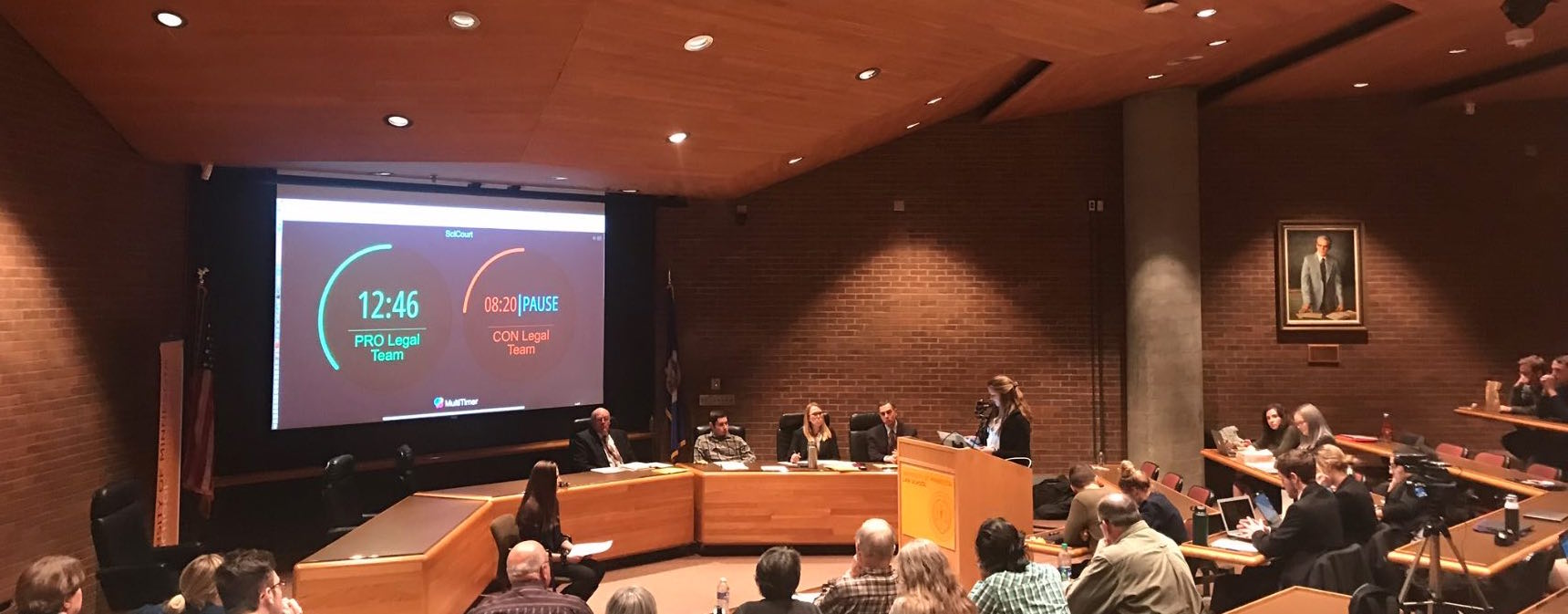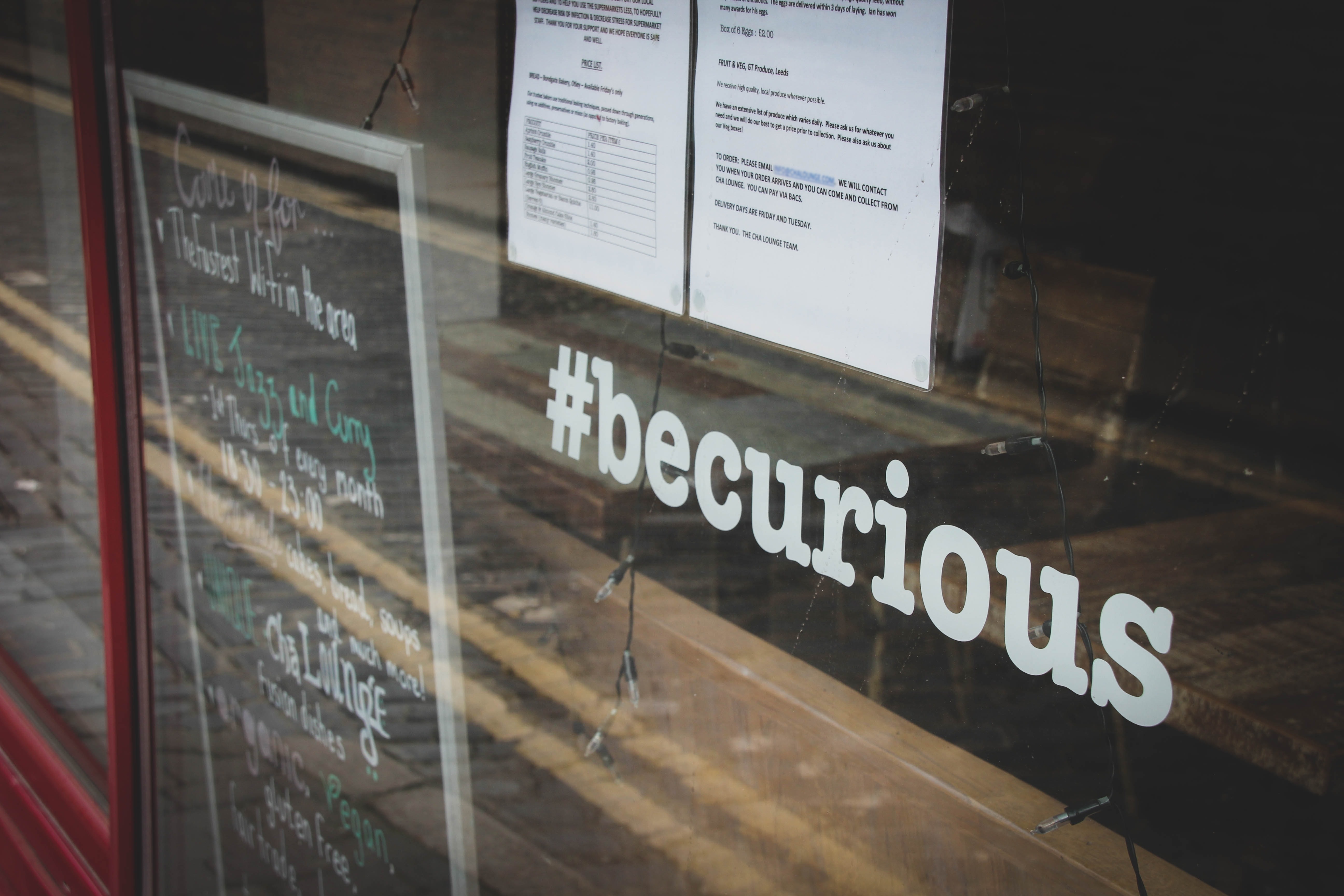
Welcome to Science Court!
Science Court is a project designed to combat polarization in American society and strengthen democracy. It is run as an interdisciplinary course in the University of Minnesota Honors Program involving students from across the university. The students select a controversial issue and spend an entire semester studying it in depth to determine the facts (based on sound scientific research) and then argue it in a mock trial in front of a jury of citizens with a mix of views and backgrounds. The public is engaged through compelling audio, video and online content generated by the students about the preparations, trial and verdict. The trial is free and open to the public.



The 2022 Science Court case is
Grading practices at the University of Minnesota can lead to bias, stress, and disincentivize learning, new innovative student assessment methods should be adopted
This year's Science Court is in partnership with the University of Minnesota (UMN) Student Senate. This topic is inspired by a Student Senate resolution, approved on December 3, 2020, requesting an extension of the UMN policy allowing students to opt for S/N grading (Satisfactory/Not satisfactory) in any course due to the COVID-19 pandemic. The Science Court case generalizes this to a full reevaluation of how students are assessed at UMN. This is timely considering increasing concerns regarding student mental health, the increased emphasis on student diversity and equity, changes in how students learn due to the technological environment, the increase in scholastic dishonesty facilitated by the internet and social media, and the rise of remote learning.
Science Court will consider student assessment holistically exploring what is known from scientific research in domains of knowledge informing this topic and propose two main strategies, Refine versus Reform, for the Student Senate to consider.
- The "Reform" (pro) approach proposes to replace the current UMN system with alternative methods for grading and student assessment proposed in the literature and tested at other institutions.
- The “Refine” (con) approach will argue to largely retain the current UMN grading system with modifications aimed at addressing its limitations based on research findings.
Stay tuned or follow us on twitter or join the Science Court mailing list to be kept informed.
LATEST BLOG POSTS
Depolarizing America: Episode 1
The University of Minnesota Science Court students will research and debate this semester whether mandatory service programs could work to create more political and racial harmony in the United States.
In this first episode of Depolarizing America, hosted by Matt Simonson, SciCourt explores historic efforts to combat polarization both inside and outside the United States. Hannah Ihekoronye and Jess Jurcek interview two members of the legal team, Andrew Bremner and Nishant Satpathy, to discuss their current research regarding U.S. government programs post-WWII as well as foreign countries' programs and policies. What programs have worked and what have not?
You can also follow along by subscribing to the Science Court Podcast on Apple Podcasts and Spotify.
SciCourt ponders new questions about psychology during case review

Photo by Gary Butterfield on Unsplash
The science team updated the rest of SciCourt on their new findings, including the effects of mandatory work on personal motivation, after weeks of honing their research skills.
SciCourt team members shared their primary findings in a case review led by Professor Ellad Tadmor, helping each other draw connections between lines of research and identifying new questions to investigate. Students are each responsible for one of seven areas of study: economics, sociology, political science, psychology, education, environment, and health. Psychology, in particular, raised important insights into the effectiveness of mandatory service.
SciCourt digs into social theories as they begin polarization cases

After weeks of preliminary research and discussion, the Spring 2021 cohort of students in Science Court are beginning to prepare the materials they will use in their end-of-semester arguments to the Science Court jury about fighting polarization in American society.
To help students better understand some of the psychological science related to mandatory service, U of M graduate student and Science Court advisor Cory Fleck presented to the group on Tuesday about social contact theory. This field of research suggests that when people are brought together to work on a task they can all contribute to with equal status, prejudice between group members can decline while respect for other members can increase.
Fleck said he is excited to see how the students are able to utilize contact theory in their case preparation. He said he thinks it will provide a foundation for research on mandatory service and whether there might be limits to what contact can achieve.